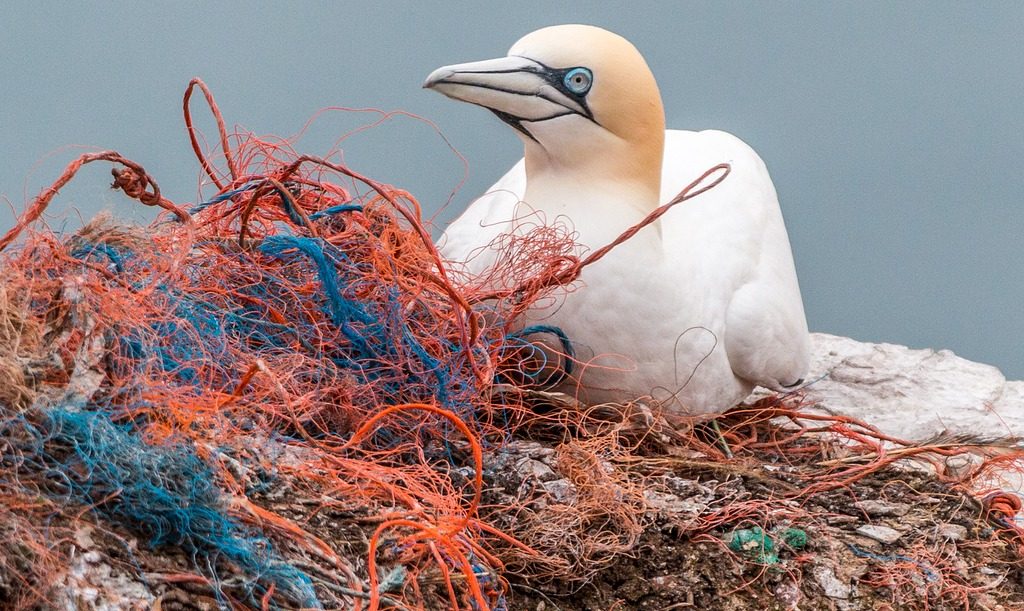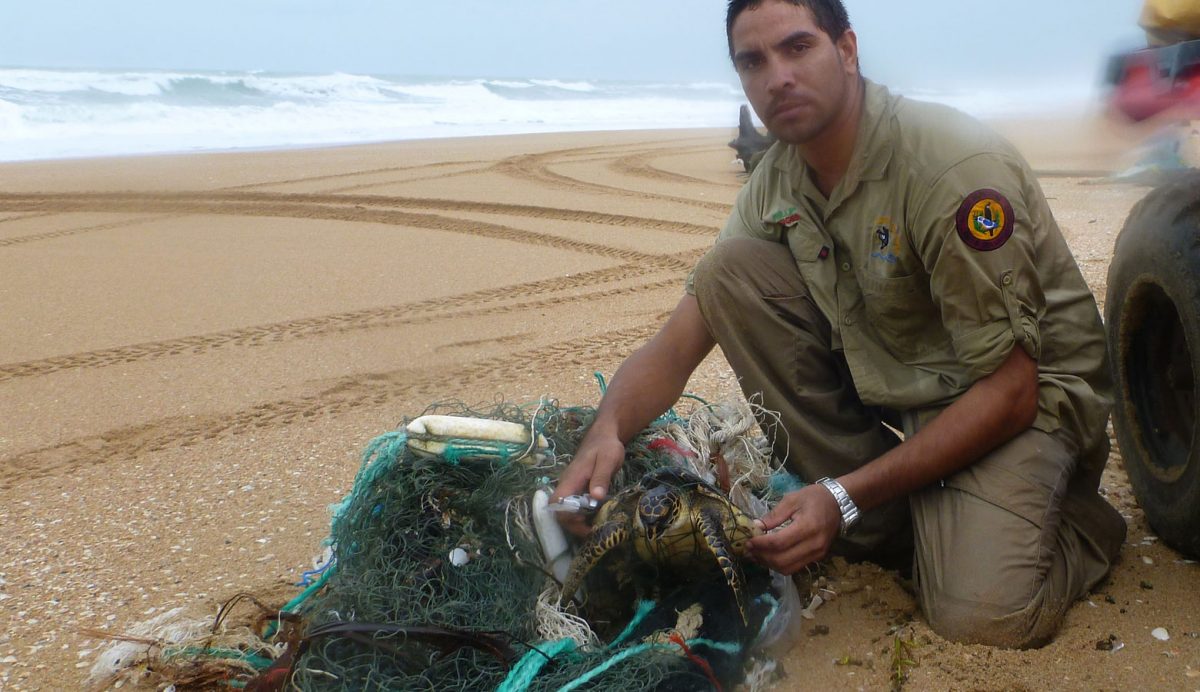
We predict by 2050, 95 per cent of seabirds will have eaten plastic.
It’s estimated our oceans contain upwards of 150 million metric tonnes of plastic. That’s 150,000,000,000 kilograms. If we converted all those kilograms into litres of water, we could fill the MCG to the brim more than 95 times. It’s actually even worse than that because plastics are usually lighter than water so they’d take up even more space than we can calculate. That’s not even all the rubbish in our oceans – we’re JUST talking plastic.
It’s not cool to be single
Single-use plastics are becoming a hot topic in the media, and we couldn’t be happier. For many years our marine research team have been fastidiously studying the effects of marine debris, especially plastics, on our oceans and wildlife.

Turtles don’t only get caught up in debris, they’re also accidentally eating it. In one of our recent studies, 33 turtles had collectively eaten a terrifying 1057 pieces of debris!
In 2014 our researchers found that almost half (43 per cent) of seabirds have plastic in their gut, with young birds being particularly susceptible. If plastic production continues to increase globally and no effort is made to curb the amount that finds its way into the oceans, we predict by 2050 nearly every seabird (95 per cent) will have eaten some plastic. Consumed plastic often accumulates in the digestive tracts of animals, increasingly affecting their capacity to feed, their health and may even cause death. It’s not just eating plastic that causes problems: many animals are maimed or killed by abandoned fishing nets, which isn’t surprising when you consider six million tonnes of fishing gear is lost in oceans every year.
The numbers add up
If the idea of a small baby bird dying doesn’t incentivise you to change, perhaps the financial impact will. Pollution in the oceans has high economic costs that affect many different sectors; including human health, fisheries, transport and tourism. It is estimated that marine debris costs approximately US$13 billion each year – and without significant change, that figure is expected to increase.
How can you help?
Every little bit of plastic rubbish is in someone’s hands before it travels across the land and reaches the ocean. If we stop rubbish from entering the ocean, we will be a massive step closer to resolving this problem. So what can you do about it? Here are five easy suggestions:
- People power: Got a favourite product that is covered in plastic? Send an email to the company advocating for change! It’s not unheard of for companies to review and improve their packaging process after receiving a few polite emails or social media comments from their loyal customers.
- Feeling fishy: As many as 15,000 turtles are caught in dumped or lost fishing gear in Northern Australia each year. So after landing your big catch, take your fishing lines, nets, lures, hooks and sinkers home with you.
- Plastic-free party: Balloons, curling ribbon and party poppers all make for a festive party, but our studies have shown even rubbish from an inner-city party will make its way to the ocean. Instead of streamers, you can buy some fabric bunting and use reusable cups, cutlery and plates.
- Bottle besties: Instead of buying single-use water bottles, take a beautiful re-usable bottle with you wherever you go. Not only are you helping the environment, you’ll probably drink more water if a bottle is right there waiting for you. Hello, hydrated skin.
- Bag brag: In water, plastic bags look uncannily like jellyfish – a staple food for turtles. If you’re not known for your organisational skills and regularly drive to the supermarket, keep a few reusable bags in your car so you have them ready to go when you need them.
While you’re busy helping make a difference locally, our researchers are busy working on the world’s largest marine pollution project: helping industries and governments around the world to implement large-scale solutions.


1st February 2019 at 12:54 pm
Perhaps the CSIRO could recommend to the Federal Government that all bags currently made of plastic be made from compostable starch. I’m astonished at how strong the bags provided by my local council for FOGO collection are. And I wonder why all garbage bags are not made from starch. If our garbage bags were compostable then they would break down in landfill, but not leave any macro or micro plastic to pollute the environment for generators come. I want to be able to buy compostable bags for general use. I think a CSIRO campaign on this issue would work wonders.
15th August 2018 at 12:20 am
I think that we humans are also hight consumers of plastics in all the world.
We need to convert the plastics in other things, usefull for industry too. into a cheap manner and without discharge them with long life in nature….
Universities need help the industry too.
Cheers,
Marilisa Stenghel from Brasil
7th August 2018 at 3:32 pm
Great to hear of the work being funded to help address this massive issue. Third world countries are less equipped and produce lots of plastic rubbish too – what’s being done on a multilateral scale to address this? Also plastics manufacturers should be encouraged to help solve this. Plastics itself is not bad, but human behavior in how we use and discard the stuff is. Plus the massive amounts of plastics being produced is any key issue.